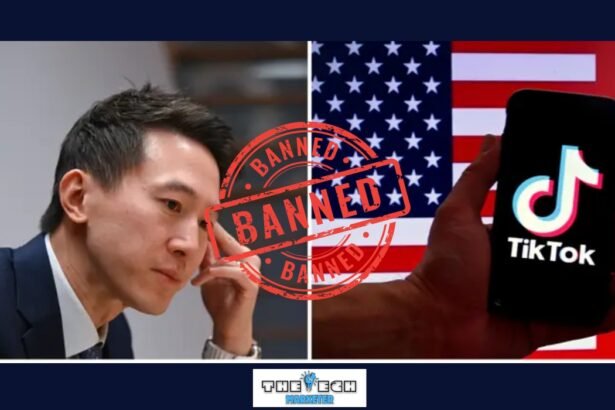The ever-popular TikTok faces an uncertain future in the United States. In April 2024, the “Protecting Americans from Foreign Adversary Controlled Applications Act” was signed, effectively banning TikTok unless its parent company, ByteDance, sells the app to a US entity. This decision sparked a firestorm of debate, pitting national security concerns against the app’s immense popularity. Let’s delve deeper into this complex situation.
Why the Ban? Security Concerns Take Center Stage
The primary driver behind the ban stems from national security anxieties. The Chinese government’s ownership of ByteDance raises concerns about user data collection. Critics argue that this data could be used for nefarious purposes, such as targeted surveillance or influencing public opinion. Here’s a breakdown of the key concerns:
- Data Collection: TikTok collects a vast amount of user data, including location, browsing history, and even keystrokes. This information, in the hands of a foreign government, could be used to build detailed profiles of individuals.
- Censorship and Manipulation: Concerns exist that the Chinese government could pressure ByteDance to censor content critical of China or manipulate algorithms to promote pro-China narratives.
- National Security Risks: The possibility of foreign intelligence agencies accessing user data, particularly from government officials or critical infrastructure personnel, raises concerns about potential espionage or sabotage attempts.
These anxieties are not unfounded. China has a history of using technology for surveillance and influencing domestic and international discourse. Additionally, the opaque nature of data collection practices under Chinese ownership fuels public unease.
But Wait, There’s More: The Power of TikTok
However, the ban on TikTok is not without its detractors. Here’s what some oppose the decision:
- A Platform for Creativity: TikTok has become a breeding ground for creativity. It empowers ordinary people to become content creators, fostering a vibrant community of dancers, comedians, musicians, and educators. A ban would stifle this platform for self-expression.
- Community and Connection: For millions of Americans, especially younger generations, TikTok serves as a source of connection and belonging. It fosters communities around shared interests and combats feelings of isolation. Banning the app could disrupt these vital social connections.
- Economic Impact: TikTok has become a significant economic force. It supports creators, fuels brand marketing campaigns, and provides advertising revenue. A ban could cripple this growing industry.
Proponents of TikTok claim that potential privacy concerns can be addressed through stricter data security regulations and content moderation practices. Additionally, they point out that alternative social media platforms already collect vast amounts of user data, making the focus on TikTok seem selective.
The Road Ahead: Legal Battles, Negotiations, and Potential Solutions
The situation remains fluid. ByteDance has expressed a desire to comply with US regulations but has not yet confirmed a sale of TikTok. Legal challenges to the ban are likely, citing potential violations of First Amendment rights. Negotiations between the US government and ByteDance could pave the way for a solution that mitigates security risks while allowing TikTok to operate in the US.
Several potential outcomes exist:
- A US Sale: ByteDance could sell TikTok to a US company, potentially addressing data security concerns. However, this raises questions about maintaining the app’s unique features and fostering the same level of creative freedom.
- Stricter Regulations: Stricter data security and content moderation regulations could be imposed on TikTok, similar to those governing other social media platforms.
- A Partial Ban: The ban could be limited to specific user groups, such as government officials, or restrict certain functionalities to mitigate national security risks.
- A Legal Battle: Legal challenges could delay or even overturn the ban, leaving TikTok’s status in the US uncertain.
The Stakes are High: Balancing Security and Freedom
There are no easy answers in the TikTok saga. The issue highlights the complex intersection of national security, technological innovation, and cultural influence. Finding a solution requires thoughtful consideration of all sides:
- Security Measures: Stricter data security regulations, robust content moderation practices, and potential limitations on data collection for US users can mitigate security risks.
- Transparency: Greater transparency from both ByteDance and the US government regarding data collection practices is crucial to rebuilding trust.
- Finding Common Ground: Open dialogue and a willingness to find common ground between the US government, ByteDance, and content creators will be essential in determining the future of TikTok in the US.
The coming months will likely see further developments in this ongoing saga. Stay tuned for updates on legal challenges, potential solutions, and the ultimate fate of TikTok in the United










